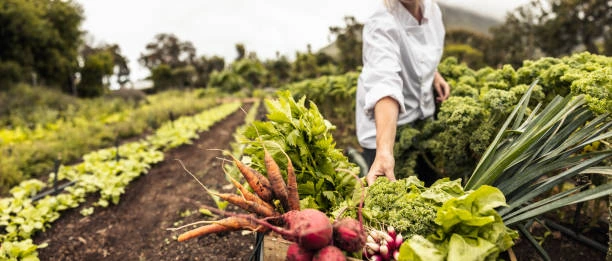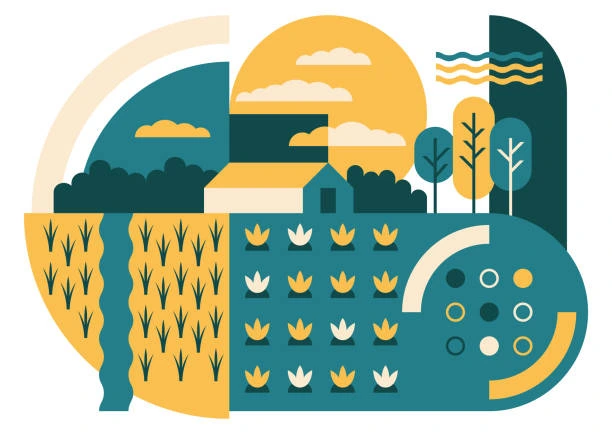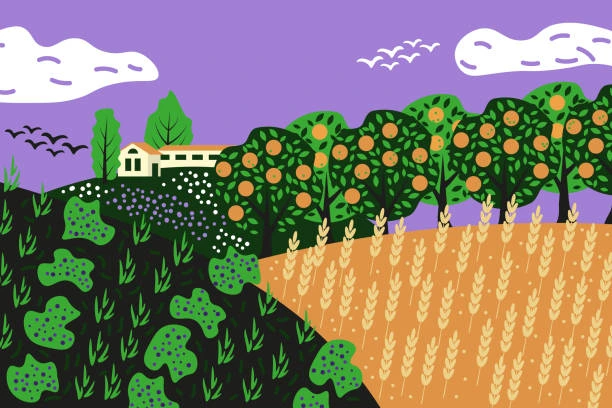Course Overview:
Climate Smart Agriculture (CSA) is crafted to provide participants with essential knowledge and skills for implementing agricultural practices that enhance productivity, resilience to climate change, and reduce greenhouse gas emissions. Throughout the course, participants will engage in exploring innovative agricultural practices that address critical issues such as food security, climate adaptation, and environmental sustainability. The course combines theoretical insights with practical case studies, interactive discussions, and hands-on sessions to ensure a comprehensive understanding of CSA principles and practices.
By end of this course, participants will have the skills and knowledge to promote Climate Smart Agriculture as a sustainable solution to food security challenges while addressing the effects of climate change
Duration
10 Days
Who Should Attend
- Agricultural extension officers and planners
- Climate change practitioners and environmentalists
- Government officials and policy makers in agriculture and environment
- Agricultural consultants and development organizations
- Farmers' associations, cooperatives, and NGOs working in rural development
- Researchers, academicians, and students in agriculture and environmental studies
- Private sector stakeholders interested in sustainable farming practices
Course Objectives
By the end of this course, participants will be able to:
- Understand the concept of Climate Smart Agriculture (CSA) and its importance in achieving sustainable food systems.
- Analyze the impacts of climate change on agriculture and identify strategies for climate resilience.
- Implement CSA practices to increase productivity while minimizing environmental impact.
- Design and apply technologies that support climate adaptation and mitigation in agriculture.
- Promote policy frameworks and investment strategies that foster CSA.
- Develop context-specific CSA solutions for smallholder farmers and large-scale agribusinesses.
- Apply tools for monitoring, evaluating, and scaling CSA practices.
Course Outline:
Module 1: Introduction to Climate Smart Agriculture
- Overview of CSA: Definition, pillars, and principles
- Climate change impacts on agriculture
- Global and regional perspectives on CSA
Module 2: Climate Change and Agricultural Resilience
- Vulnerability and risk assessments in agriculture
- Climate models and scenarios
- Enhancing resilience in farming systems
Module 3: Sustainable Land and Water Management in CSA
- Soil health management and conservation practices
- Water management and irrigation techniques for CSA
- Agroforestry and integrated farming systems
Module 4: CSA Technologies and Innovation
- Precision agriculture and digital tools for CSA
- Sustainable intensification of crop production
- Climate-smart mechanization and post-harvest technologies
Module 5: CSA and Livestock Management
- Sustainable livestock production systems
- Greenhouse gas mitigation in livestock
- Livestock feed, health, and water management
Module 6: Climate-Smart Crop Management
- Climate-resilient crop varieties and seeds
- Crop diversification and rotation strategies
- Pest and disease management in a changing climate
Module 7: Financing and Policy Frameworks for CSA
- Policy instruments and frameworks supporting CSA
- Climate finance mechanisms and opportunities
- Public-private partnerships for CSA implementation
Module 8: Monitoring, Evaluation, and Scaling CSA
- Tools for assessing CSA outcomes
- Developing indicators for monitoring climate resilience
- Approaches to scaling CSA innovations
Module 9: Case Studies and Best Practices in CSA
- Regional and global case studies on successful CSA initiatives
- Lessons learned and best practices in various agro-ecological zones
- CSA interventions for smallholders and commercial agriculture
Module 10: Action Planning and Field Visits
- Field visits to CSA project sites and farms
- Case study on CSA strategies for different contexts
- Developing an action plan for implementing CSA in participants' region
Customized Training
This training can be tailored to your institution needs and delivered at a location of your choice upon request.
Requirements
Participants need to be proficient in English.
Training Fee
The fee covers tuition, training materials, refreshments, lunch, and study visits. Participants are responsible for their own travel, visa, insurance, and personal expenses.
Certification
A certificate from Ideal Sense & Workplace Solutions is awarded upon successful completion.
Accommodation
Accommodation can be arranged upon request. Contact via email for reservations.
Payment
Payment should be made before the training starts, with proof of payment sent to outreach@idealsense.org.
For further inquiries, please contact us on details below:






